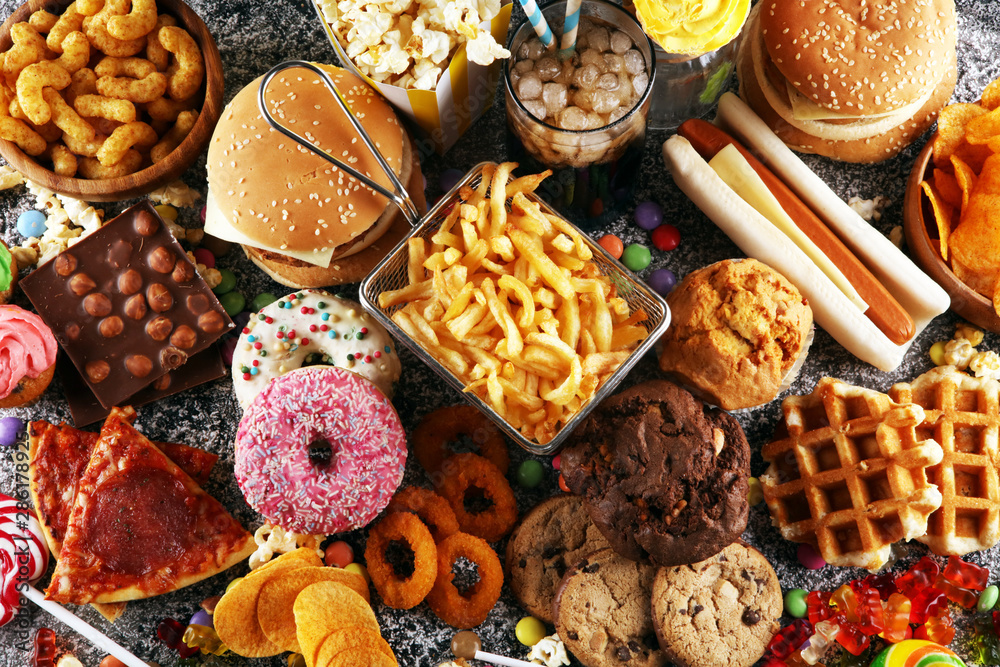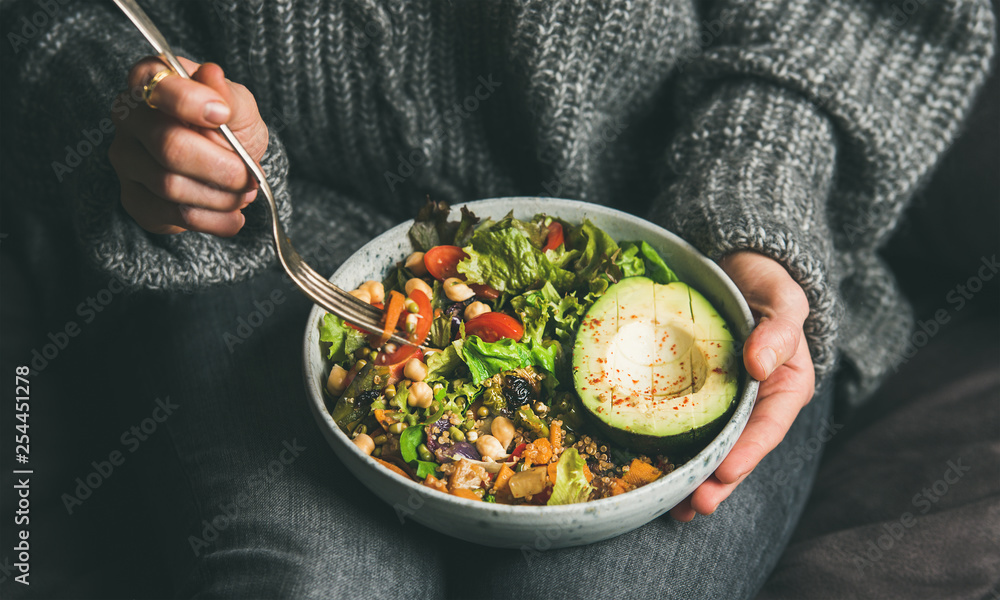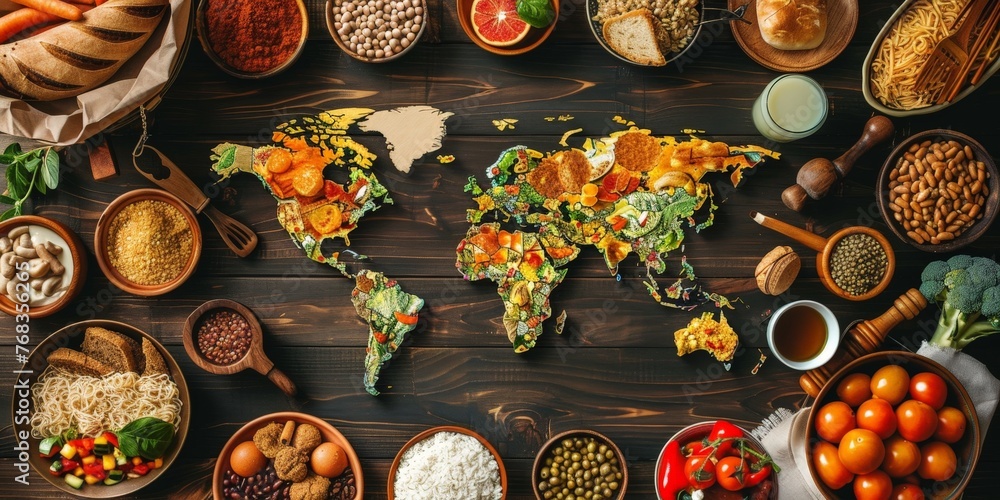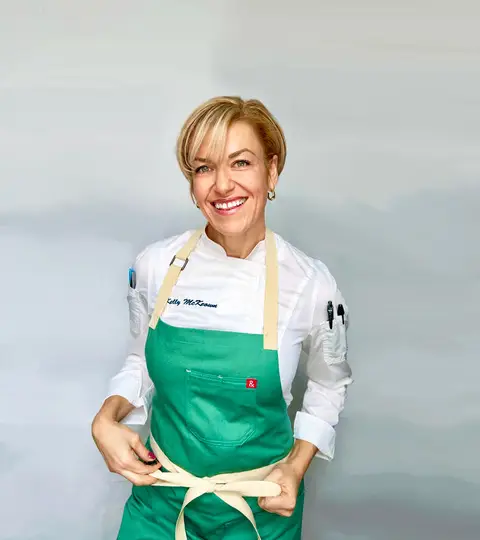People will always pressure you into eating unhealthy foods. We need to develop the confidence to not do it with them if we don’t want to. I used to always cave in and say yes to family members offering me food I didn’t want. Now they understand the lifestyle they live an it’s usually never an issue anymore. Take pride in becoming the role model in your family for living a healthy lifestyle!
Does healthy food really taste good?
We live in a time when processed and convenience foods dominate our diets to such an extent that many people have lost the ability to appreciate and enjoy “real” food—food that is fresh, whole, and minimally processed. This shift in eating habits has not only affected our taste buds but also our perceptions of what it means to eat well. Unfortunately, when someone makes the conscious choice to eat healthier, it’s often misunderstood as being on a restrictive “diet” rather than a choice to nourish the body with wholesome foods.
This misunderstanding sometimes leads to social pressures and even mockery,
as choosing real food over junk food is seen as unusual. Our society has become so used to consuming fast food, sugary snacks, and overly processed meals that these have become the norm. As a result, the idea of eating fresh fruits, vegetables, whole grains, and lean proteins is sometimes met with resistance or seen as an unnecessary challenge.
For those who have made the commitment to prioritize healthy eating, the allure of junk food diminishes over time. The craving for highly processed, sugary, or fatty foods often fades, replaced by a genuine preference for foods that fuel the body and mind. This shift in mindset and taste can make it easier to bypass the temptations of junk food, not because of strict self-discipline, but because the desire for it simply isn’t there anymore.

It’s also important to recognize that eating well doesn’t mean denying yourself all indulgences. For example, if I find myself in Italy, a place known for its incredible cuisine, I wouldn’t hesitate to enjoy a slice of authentic pizza. However, outside of such special circumstances, I might choose to skip it, knowing that my usual diet serves my health and well-being better.
Learning to say no is a powerful skill that goes beyond food choices. It’s about making decisions that align with our values, priorities, and long-term goals, even when it means going against societal norms or facing criticism. Whether it’s passing on a slice of cake at a party or choosing to prepare a home-cooked meal instead of ordering takeout, these choices reflect a deeper understanding of what truly nourishes us. We need to embrace the idea that it’s okay to say no to things that don’t serve us, whether that’s junk food, unhealthy habits, or any other aspect of life that doesn’t align with our well-being.
Traveling to other countries and trying local food
Whenever I travel to a new country or place, I make it a priority to thoroughly research the local culture and cuisine. It never ceases to amaze me how some people travel to new and exciting destinations only to stick to familiar foods like burgers and pizza. For me, the joy of travel lies in immersing myself in the local experience, and a significant part of that is trying the national dishes, exploring local foods, and discovering unique produce that the region has to offer.
Before embarking on any trip, I spend time learning about the culinary traditions of the place I’m visiting. I delve into the history behind the dishes, the ingredients that are native to the area, and any unique food-related customs. This preparation not only enriches my travel experience but also allows me to fully appreciate the flavors and techniques that are characteristic of the local cuisine.
One practical tip I always follow is to make a list of at least seven different foods or dishes I want to try. This way, if something is out of season or unavailable, I have several other options to choose from. It’s a simple strategy, but it ensures that I don’t miss out on the authentic culinary experiences that make each destination unique.
In my view, travel is about expanding our horizons and embracing new experiences. How can we truly learn about and understand different cultures if we don’t take the opportunity to try something new? Whether it’s a street food delicacy, a traditional home-cooked meal, or an exotic fruit I’ve never heard of before, tasting local foods is an essential part of the journey. It’s through these experiences that we gain a deeper appreciation for the diversity and richness of the world’s cultures.
The importance of exercise for physical and mental health
People often ask why I exercise so much, pointing out that I’m already “skinny” enough. But for me, exercise isn’t just about how I look; it’s a crucial part of who I am and how I feel. When I don’t get some form of exercise each day, it’s as if something vital is missing from my routine. It’s not just a habit but a necessity for my mental and emotional health. Exercise helps me manage anxiety, reduces stress, and gives me a sense of clarity and calm that nothing else can provide.
People tend to focus on the physical benefits,
like weight loss or muscle tone, but they overlook how transformative exercise can be for the mind. I’ve found that when I’m active, I’m more focused, more positive, and better equipped to handle life’s challenges. The saying, “A body in motion stays in motion,” resonates deeply with me because I’ve experienced the other side of it. There was a time when I became really heavy, and the impact on my body was undeniable—my back ached, my knees were constantly sore, and I felt sluggish and uncomfortable in my own skin.

Exercise was my way out of that cycle, and it became much more than a tool for physical change. It’s my therapy, my stress relief, and my way of ensuring that I’m taking care of myself inside and out. When I move, I feel alive, connected, and in control. So when people tell me I’m already “skinny enough,” I want them to understand that for me, exercise is not about reaching a certain size or shape. It’s about maintaining a healthy mind and body, staying active to avoid the physical pain I once felt, and ensuring that I’m living my life to the fullest potential.
We are shaped by what we consume and surround ourselves with
Ever wonder why we have distinctive accents? It’s a fascinating aspect of human language and culture that often goes unnoticed until we step outside our familiar surroundings.
As a child growing up in South Philadelphia, I was blissfully unaware of my accent or the unique slang words I used. It was simply the way everyone around me spoke, and I never gave it a second thought. However, my perspective changed dramatically when I was about 20 years old and started working for a couple who ran their own business outside the city.
My boss took it upon themselves to correct my speech patterns daily. Initially, I found this practice irritating and somewhat invasive. Who were they to tell me how to speak? After all, this was how I’d communicated my entire life. But as time went on, I began to see the value in their corrections.
One of the most noticeable aspects of my accent was the tendency to drop the ‘g’ at the end of certain words. For example, instead of saying “going,” I would say “goin’.” Each time I made this mistake at work, my boss would gently point it out. This consistent feedback slowly but surely made me more aware of my speech patterns.

Now, as an adult, I’m immensely grateful for their persistence in helping me refine my speech. It’s not just about sounding more “professional” or “educated,” but about expanding my linguistic horizons and becoming more versatile in my communication skills.
This experience taught me a valuable lesson that extends far beyond pronunciation: the importance of continuous growth and exposure to new ideas and experiences. Just as I strive to consume healthy foods for my physical well-being, I now make a concerted effort to surround myself with people who can teach me new things and challenge my existing perspectives.
Our accents reflect our origins, but personal growth comes from embracing new experiences. By stepping outside our comfort zones and learning from diverse influences, we expand our perspectives and skills.
Kelly
Growth is impossible if we remain stuck in old environments or cling to outdated ways of doing things. As the saying goes, “Nothing changes if we don’t change.” This applies to every aspect of our lives, from our speech patterns to our worldviews.
If we never venture beyond the environment where we grew up, we miss out on exposure to other cultures, traditions, and ways of life. Our worldview remains limited, and we may struggle to understand or empathize with people from different backgrounds.

Similarly, if we never try new foods, we’ll never experience the vast array of flavors and culinary traditions that exist beyond what our families cooked for us. Food is not just sustenance; it’s a gateway to understanding different cultures and expanding our palates.
Socializing with the same group of friends throughout our entire lives, while comfortable, can limit our personal growth. By interacting with diverse groups of people, we open ourselves up to new ideas, perspectives, and experiences that can broaden our horizons and deepen our understanding of the world.
In my professional life, particularly when I worked in kitchens, I always sought out environments where my colleagues were more skilled than me. While it might have felt great to be the most talented person in the room, I recognized that this wouldn’t lead to continued learning and growth. By surrounding myself with more experienced professionals, I ensured that I was constantly challenged and had opportunities to expand my skillset.
This principle applies to all areas of life. Whether it’s in our careers, hobbies, or personal relationships, placing ourselves in situations where we’re not the smartest or most skilled person can be uncomfortable, but it’s also where the most growth happens. It pushes us to learn, adapt, and improve continuously.
In conclusion, our accents, like many aspects of our personalities and skills, are shaped by our environments. But we have the power to expand beyond our initial influences. By actively seeking out new experiences, surrounding ourselves with diverse and skilled individuals, and being open to correction and growth, we can continually evolve and enrich our lives. Remember, every interaction is an opportunity to learn something new, and every challenge is a chance to grow. Embrace the discomfort of the unfamiliar, for that’s where true personal development begins.
Early Self-Care: Lifelong Advantages
The key idea of long-term benefits resulting from taking care of oneself starting at a young age.
Continue readingStaying away from vices
To be truly productive in life, it’s crucial to maintain a clear focus by avoiding all vices and distractions. These behaviors, whether it’s alcohol, gambling, overeating, vaping, smoking, or excessive shopping, often serve as temporary escapes from uncomfortable emotions or stress. While these actions may provide immediate relief, the satisfaction they offer is fleeting and can lead to a cycle of dependency that ultimately hinders personal growth and productivity.
Whenever I find myself tempted to reach for something to escape how I’m feeling, it’s a signal that I need to pause and reassess. This moment of self-reflection is essential because it allows me to confront the root of my discomfort rather than masking it with unhealthy habits. By staying mindful of my actions and choices, I can cultivate resilience and make decisions that align with my long-term goals.
"Strength lies in choosing long-term growth over short-term comfort. True productivity is born from mindful choices, not momentary escapes."
Kelly
The allure of instant gratification is powerful, but it’s important to remember that the relief it provides is temporary and often comes at a cost. In contrast, by facing my emotions head-on and finding healthier ways to cope, I can build a more fulfilling and productive life. True productivity is not just about accomplishing tasks but also about fostering a lifestyle that supports continuous growth, well-being, and the ability to navigate challenges without relying on detrimental habits.
Consume things as if you were a high performance race car
Treat your body as if it were the most expensive, high-performing vehicle you can imagine. Picture a top-of-the-line luxury sports car or a cutting-edge electric vehicle. Just as you would care for such a prized possession, your body deserves the same level of attention and maintenance.
Your body is your lifelong companion, the vessel that will carry you through every experience, challenge, and triumph for the rest of your days. It’s not just a temporary ride; it’s a permanent home for your consciousness. With this perspective, it becomes clear how crucial it is to provide it with the best possible care and nourishment.
Fueling your body with proper nutrients is paramount. Just as you wouldn’t put low-grade fuel in a high-performance car, you shouldn’t fill your body with subpar food. The quality of what you consume directly impacts your body’s performance, both physically and mentally. Nutrient-dense foods provide the essential building blocks for cellular repair, energy production, and overall health.
When you consistently put "crap" into your body –
such as excessive processed foods, sugary drinks, or alcohol – it’s akin to pouring contaminated fuel into an engine. The body struggles to function optimally, leading to a range of negative consequences. You might experience decreased energy levels, compromised immune function, mood swings, and a general sense of unwellness.
Personal experience often serves as the best teacher. For instance, when I used to drink excessively, I was essentially draining my body’s resources. Alcohol, while it may provide temporary pleasure, acts as a toxin that the body must work hard to process and eliminate. This constant state of detoxification left me feeling perpetually drained, susceptible to illness, and generally unwell.
Similarly, a diet high in processed foods can wreak havoc on your body’s systems. These foods are often packed with artificial ingredients, excessive sugars, and unhealthy fats. They contribute to chronic inflammation, which is linked to numerous health issues. Moreover, they often lack the fiber and nutrients that promote satiety, leaving you in a cycle of constant hunger and overeating.
Taking control of your nutrition is a powerful step towards optimal health. Recently, I’ve started tracking all the food I consume with the guidance of a trainer at my gym. This practice has been eye-opening and transformative. By meticulously recording what I eat, I’ve gained a clearer understanding of my nutritional intake, including macronutrients (proteins, carbohydrates, and fats) and micronutrients (vitamins and minerals).
This detailed food tracking has allowed me to get “dialed in” with my diet. I can now make informed decisions about what I eat, ensuring that I’m providing my body with the right balance of nutrients. It’s helped me identify areas where I might be lacking certain essential nutrients and where I might be overconsuming others.
The benefits of this approach are numerous. By fueling my body properly, I’ve noticed improvements in my energy levels, mental clarity, physical performance, and overall sense of well-being. I’m more in tune with my body’s needs and can better distinguish between true hunger and other triggers for eating.
Remember, your body is an incredible machine capable of amazing feats when properly cared for. By treating it with the respect and attention it deserves, you’re investing in your long-term health, happiness, and quality of life. Make conscious choices about what you consume, listen to your body’s signals, and strive for balance. Your body will thank you with improved performance, resilience, and vitality for years to come.
Food and drink anxiety at restaurants
Sometimes we get anxious when making healthy food or drink choices when eating out. Many times I’ve been on vacation and asked for no alcohol in my beverage- only to be mocked by the bartender. At the time it made me uncomfortable. I’ve since gained more confidence and know it’s perfectly ok to decline or say no to something. It does not matter what others think or say.
Living a healthy lifestyle without caring about others’ opinions
No matter what you do in life, people will always have something to say. When you start making better choices in life and bettering yourself, some of your friends may make comments. This is because you are doing the work in making yourself better. This may put the mirror on others and make them more aware of things they need to work on however choose not to do so.
It is an inevitable truth that regardless of our actions and decisions, there will always be individuals expressing their opinions. When we embark on a journey of self-improvement and start making wiser choices, it is not uncommon for our acquaintances to voice their thoughts. This occurs because our personal growth serves as a reflection for others, highlighting areas they might also need to address, but consciously choose not to pursue.











